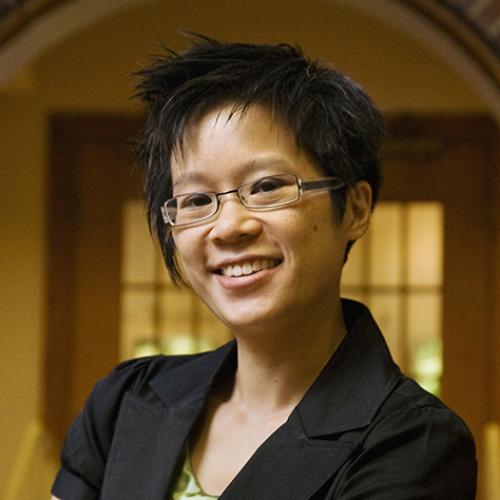Associate Professor Bonnie Mak will travel to the United Arab Emirates in March to take part in a workshop at New York University’s Abu Dhabi Institute. “Charisma of the Book: Global Perspectives for the 21st Century,” will be held March 12-14.
Mak will be among twenty-five invited scholars and book artists from around the world who will gather together to engage in conversations on “the history and future of the book, exploring comparative and interdisciplinary interpretations and applications of the concept of charisma.” The group will address questions such as, “How might the concept of charisma illuminate the materialization—and marginalization—of the book's cultural status and social power in the digital age? What does a transcultural history of the physical artifact of the book reveal about the social interfaces and media platforms of its possible futures?”
During the event, Mak will speak on the aura that has long attracted people to physical books and the allure of information in digital formats.
Abstract: One of the enduring attractions of books is their ability to stand witness to their own presence through time and space. A history of social interaction is marked on the pages of a book; a folded corner, a stain from a careless reader’s cup of coffee, and a thoughtful comment in the margin accrue and transmit something of where the book has been, with whom, and under what circumstances. Characterized by Walter Benjamin as the particular historical testimony that adheres to a unique body, the auratic quality of a singular object must now be reconciled with digital entities that can be simultaneously embodied in a range of material configurations. Rather than summoning a Benjaminian aura that is attached to a specific materiality, then, the performance of the digital entices the reader in a different way: with an aura of ‘information’. This paper shall explore the allure of information, and consider its broader implications for scholarship and meaning-making more generally.
At Illinois, Mak is jointly appointed in GSLIS and the Program in Medieval Studies. She teaches courses in the history and future of the book and offers doctoral seminars on authenticity, reading practices, and knowledge infrastructures. Her first book, How the Page Matters (2011), examines the interface of the page as it is developed across time, geographies, and technologies. Current projects include Confessions of a 21st-Century Memsahib, an examination of the manufacture of data and digital resources, and Designing an Argument: A Collaboration in Scholarly Publication, which tests the boundaries of scholarly publication by articulating a humanistic argument in the language of scientific diagrams. She is 2015-2016 senior fellow at the Center for Humanities and Information at The Pennsylvania State University and a 2013 GSLIS Centennial Scholar.
